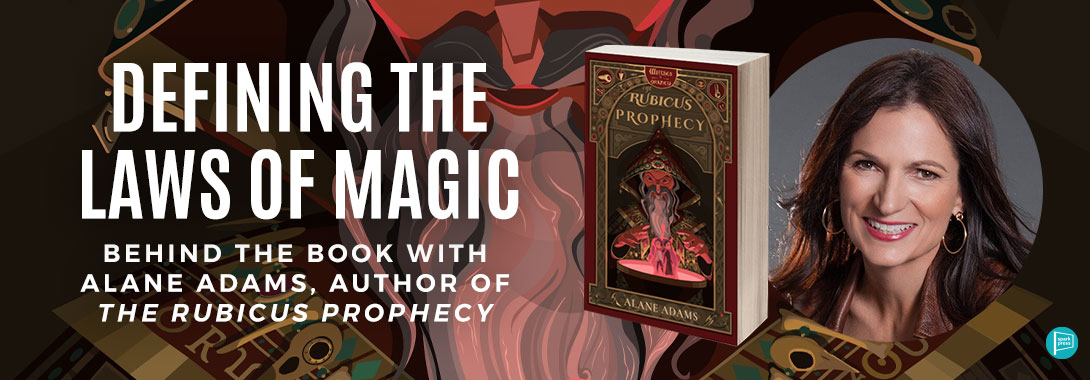
As a fantasy author, creating a rich magical world requires worldbuilding to create a place that is both fantastical yet plausible. It includes setting up the geography, creating new cultures, people, and creatures, and defining the rules of how magic works. Creating a magical system is one the most creative and fun aspects of storytelling—but also one of the hardest things to do well. An author must strive to build a world that is grounded in realism yet contains fantastical elements that follow an orderly set of rules so that readers are able to understand and buy into the fantastical premises. If the magic doesn’t make sense, or if it appears randomly at opportune times, it will feel too deus ex machina and ruin an otherwise excellent story.
Gaining Magic
One of the first things to consider is the gaining of magic—where does magic come from? In many cases, magic is received through a bloodline—inherited from one parent or the other. Percy Jackson was the son of the Greek god Poseidon. Harry Potter was born to magical parents, but other characters could also become wizards without magical parents, though it was uncommon. So there is a value and limit placed on who can have magic in the world.
In other cases, a character might gain powers by coming in contact with a magical object, such as Alice when she falls down the rabbit hole and eats the cake, or Frodo and the ring in the Lord of the Rings. Take away the object, and the character most likely loses the additional power they gained. Either way, it’s important to set guidelines of how magic is gained in the world so that the reader knows what to expect and the author remains consistent.
Limits of Power
Another important aspect is the limits of power your characters are allowed. Magic and its uses shouldn’t be available in unlimited supply or the most powerful character could just wrinkle their nose and gain whatever they desired! For magic to be effective, it has to have both limits and a price. The use of magic can’t easily solve the problem of the characters or the conflict in the story will be lessened. Consider Lord Voldemort, who was extremely powerful, but was still weakened by losing his body. His powers grew back over the course of the series. Had he been at full-strength in the first book, poor Harry wouldn’t have lived to star in the sequel!
With limits also comes a cost of using magic. If magic can be wielded all day long with no drain on the wielder, its less interesting then if it takes a toll. Consider every time Frodo put on the ring, he became more tormented and is dragged deeper and deeper into a dark and tormented place.
Controlling Power
A third aspect to consider is how your characters learn to access and control their magic. We saw early on in the Harry Potter series, Harry loses his temper at his cousin and makes the glass disappear on a snake cage, causing the boy to fall in. Harry had no idea he had accessed his magic and exerted no control over it. I use something similar in my new series, Legends of Olympus, when the main character, Phoebe, doesn’t know she’s a daughter of Zeus and can affect the weather. She thinks, Bad things happen around me but it’s not like they’re my fault!
Characters who are unaware they have magic often access their powers through strong emotions that trigger the response, typically anger or fear. As characters become aware of their powers, they can be taught to master them by someone more experienced or knowledgeable, such as Yoda training a young Luke Skywalker.
Accessing Magic
Access to magic can be granted in many different ways but typically can be called on with special words that trigger a specific action, such as when Harry Potter characters recite Wingardium Leviosa. There is a tremendous opportunity for an author to have fun and be creative when defining the language used to access magic. Often times a Latin root is used, because the root stems can shape a familiar feeling in the reader.
Other times characters access magic by using objects, such as my character Sam in The Red Sun when he wields a piece of Odin’s Stone that still retains some magic from the gods. In the case of Star Wars, characters call on the Force by feeling it and directing it. Whether magic is called up by use of a spell, tapped into, or an object is cast, it is important that the reader understand exactly how and when magic can be triggered.
Balancing the World
One final aspect to consider is how magic is balanced in the world you create. Generally opposing forces help balance a system out. If there is dark magic, one would expect to find light magic as well. If plants can speak in your world, one would likely expect animals to speak as well. And if you’re using elemental magic such as water or earth, consider what elements you’re excluding and why. The systems of magic should complement and help solidify the world without being polar in nature. When the rules of magic are clearly set out for the author, it becomes a more seamless process of delivering details and plot points into the story to sweep the reader into your magical universe.
Alane Adams is an author, professor, and literacy advocate. She is the author of the Legends of Orkney fantasy mythology series for tweens and The Coal Thief, The Egg Thief, The Santa Thief, and The Circus Thief picture books for early-grade readers. She lives in Southern California. Check out her new juvenile fiction series, The Witches of Orkney, here.

Leave A Comment